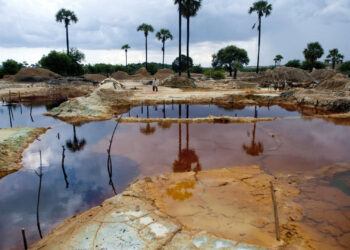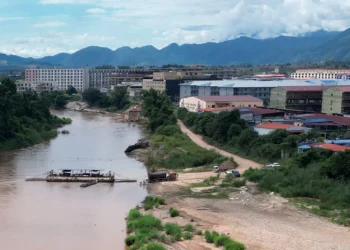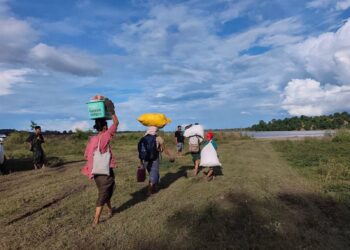Some 170,000 people in the eastern Myanmar state of Karenni have been displaced by a junta military campaign that has been met with armed resistance from local defence forces and ethnic armed organisations.
Since May of last year, the Myanmar army’s ground and air forces have been indiscriminately shelling and bombing civilian targets including villages and towns, as well as camps for internally displaced persons (IDPs). Beginning in June and July and continuing in the months that followed, some two-thirds of Karenni State’s population have been forced from their homes, according to local civil society organisations.
Many IDPs have had to repeatedly flee temporary camps due to junta air raids and clashes between the military and local resistance forces.
The photos seen here are from an IDP camp in a village within Demoso Township which for eight months has hosted some 1,000 displaced people from throughout the township, including Demoso town.
Among them are children and the elderly, with the camp population still on the rise; more people recently arrived from the town of Nan Mei Khon and from Loi Nan Hpa village due to escalating battles, according to a member of the Karenni State IDP Rescue and Care Network.
“The main difficulty is the shortage of water. The water supply is very scarce,” the network member told Myanmar Now, adding that the IDPs were also suffering from health issues including diarrhoea and skin conditions due to the lack of access to clean water.
“The village is in a mountainous area, too. Food is also scarce. The host villagers only do hillside plantations but do not grow rice,” they explained.
A man living in the camp said he is persistently worried about the lack of food.
“We have something to eat now, but we are constantly troubled, thinking about when it will run out,” he told Myanmar Now.
He added that being unable to work or return to their communities had led to depression and a sense of despair among people living in the camp.
“We long for our village. We want to work on our own and live in our own homes even if we are poor.”
Credit- Myanmar Now






